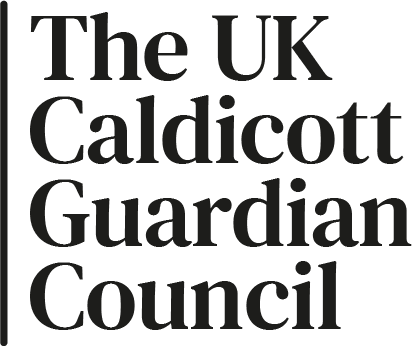UKCGC publishes guidance on information sharing in cases of domestic violence and abuse
The UKCGC has prepared new supplementary guidance to support best information sharing practice in domestic violence and abuse (DVA) cases.
The need to share information about a patient or social care service user is a critical factor in tackling domestic violence and abuse. Domestic homicide reviews make depressingly predictable reading, as they indicate that the failure to share crucial information continues to be a significant factor across health and care, despite the introduction of a seventh Caldicott Principle in 2013: The duty to share information can be as important as the duty to protect patient confidentiality.
Existing guidance
In 2013, the UKCGC and the Department of Health jointly published Striking the Balance, which advises on the application of Caldicott Principles to information sharing at Multi Agency Risk Assessment Conferences (MARACs). For cases of DVA, MARAC is a victim-focused information sharing and risk management meeting attended by all key agencies, where high risk cases are discussed.
However, MARACs only deal with the very highest level of cases. In addition, there are millions of other victims and survivors whose lives are blighted and devalued every day by domestic violence and abuse.
Information sharing issues
When it comes to sharing information in support of these (non MARAC) individuals, staff are eager to do the right thing but their personal risk aversion and the lack of clarity of legal and ethical guidance--together with misinformation around GDPR and other Information Governance “rules” – make them wary and disinclined to do so. Common problems include routinely omitting to apply the seventh Caldicott Principle (the duty to share), and the third Principle (use the minimum amount of information necessary) being literally interpreted as using the minimum, but without enough consideration as to what information is actually necessary and sufficient.
These continued widespread difficulties experienced by “ordinary staff” in practically applying the Caldicott Principles in DVA cases has led the UKCGC to develop this supplementary guidance, and an accompanying template to aid the recording of decision to share.
Stakeholder involvement
There are multiple diverse agencies and charities working to combat DVA who deal with a multitude of complex issues including consent, autonomy, coercion and suggestibility, love, vulnerability, substance and alcohol abuse, mental health, perpetrator intervention, and some victims/survivors who may not recognise the reality or seriousness of their situation. This guidance has evolved over several years in consultation with these agencies and organisations – some of whom hold differing views – but it seeks to be acceptable and useful to all.
The new guidance
We heard that people wanted simple guidance that would be quick and easy for all staff to understand and communicate; people did not want more lengthy detailed guidance. We have therefore produced a one-line ethical principle supported by a simple information sheet and a decision-making template. This ethical principle is: “An individual’s information may be shared if it is believed that it is necessary to prevent or reduce the risk of serious harm to themselves or others.”
It should be noted that the words “may be shared” are used deliberately, rather than a more prescriptive “should or must”. Although the proposition provides no legal basis for setting aside the common law duty of confidentiality, it does provide a considered, concise, and supported ethical position that can be communicated to staff. Information shared should always be proportional to the potential risks and benefit, and any risk assessments and Data Protection Impact Assessments (DPIA’s) should include both the risks of sharing and the risks of not sharing.
One of the potential implications of the Domestic Abuse Bill currently under discussion is the seriousness with which the crime of domestic violence and abuse may be viewed by the courts, which may have a significant impact on Caldicott Guardians' decision making in relation to the proportionality of disclosures, and the degree to which a public interest justification may be used to satisfy the requirements of the common law duty of confidentiality.
These are complex decisions which may not have simple solutions, but Caldicott Guardians, as the conscience of their organisation, are well placed to act as agents of change by providing wisdom and leadership in this challenging area.
A template to support decision making
Caldicott Guardians and those involved in making information and data sharing decisions should document both their considerations and conclusion.
The UKCGC offers a simple template which may be used to document decisions about sharing; it provides a consistency of approach and supports compliance with the GDPR and common law in all cases — not just those involving DVA.
Article by Christopher Fincken (UKCGC member and former Chair). Christopher leads for the UKCGC on DVA and represents the UKCGC at the Inter-Collegiate & Agency Domestic Violence and Abuse Forum (INCADVA).
